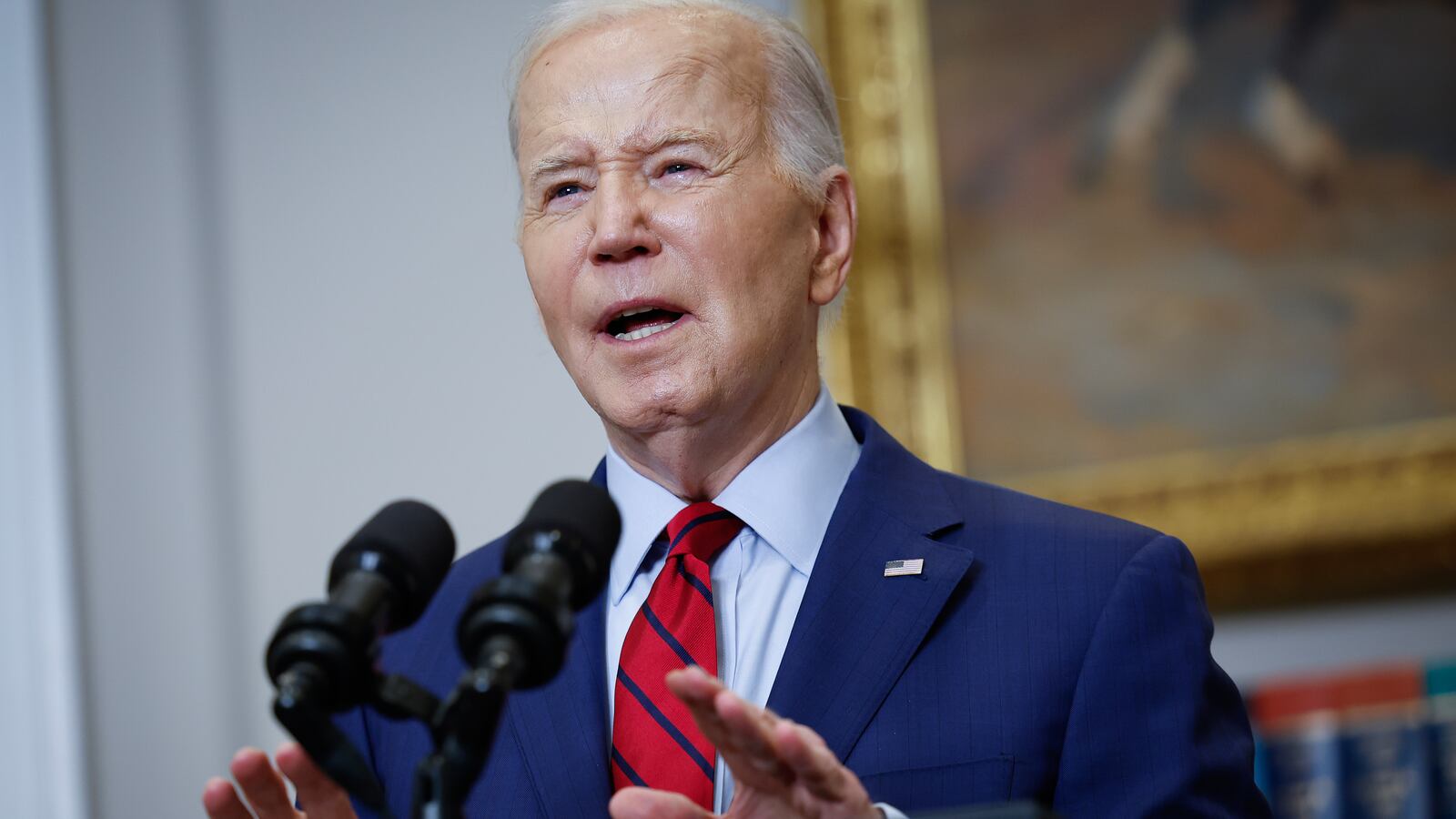After weeks of pro-Palestinian protests and chaotic arrests on college campuses, President Joe Biden finally responded to calls for military action.
Asked on Thursday about the protests, which have spread coast to coast and resulted in an estimated 1,900+ arrests, Biden gave a series of curt answers.
“Have the protests forced you to reconsider any of the policies with regard to the region?” a reporter at his Thursday press conference asked.
“No,” the president said.
“Do you think the National Guard should intervene?”
“No,” the president repeated.
The question of whether or not to involve the National Guard has been pushed by some Republicans, including House Speaker Mike Johnson (R-LA), who directly called on Biden to involve the military when he visited Columbia University last week. The calls have inevitably stirred harrowing memories of the Kent State massacre in 1970, in which the Ohio National Guard killed four unarmed students who were protesting the Vietnam War on Kent State University’s campus.
On Thursday, Biden acknowledged students’ right to peaceful protest but said other tactics, like occupying buildings and defacing school property, were a step too far.
“Violent protest is not protected. Peaceful protest is. It’s against the law when violence occurs. Destroying property is not a peaceful protest. It’s against the law. Vandalism. Trespassing. Breaking windows. Shutting down campuses. Forcing the cancellation of classes and graduations. None of this is a peaceful protest,” he said.
At Columbia, student protesters on Tuesday took over a campus building that had also been occupied in 1968 by antiwar student demonstrators. Occupation then was a common protest tactic, which the school has commemorated and memorialized.
University administrators responding to the student protests of the past few weeks have often preemptively reached for police. At UT Austin, President Jay Hartzell called in state troopers and the Austin police in addition to the campus police force, which culminated in several peaceful protesters being dragged away from where they sat on a lawn. The charges against the 57 protesters arrested on April 24 were all dropped by the Travis County Attorney, who said there was doubtful evidence of probable cause for their arrests.
At other campuses, police appear to have acted too late to stem the flow of violence. When a crowd of pro-Israel counter protesters attacked the encampment at UCLA on Tuesday night, lobbing fireworks into the protest area, they sparked a bloody clash between the groups that upturned an otherwise peaceful encampment. The Los Angeles Times reported that during the fighting, security guards on standby simply watched and did not intervene. They shut down the camp the next morning.
As for graduation, only the University of Southern California has canceled its main commencement ceremony, also preemptively citing safety concerns without specifying whether direct threats or plans to disrupt had been made.






